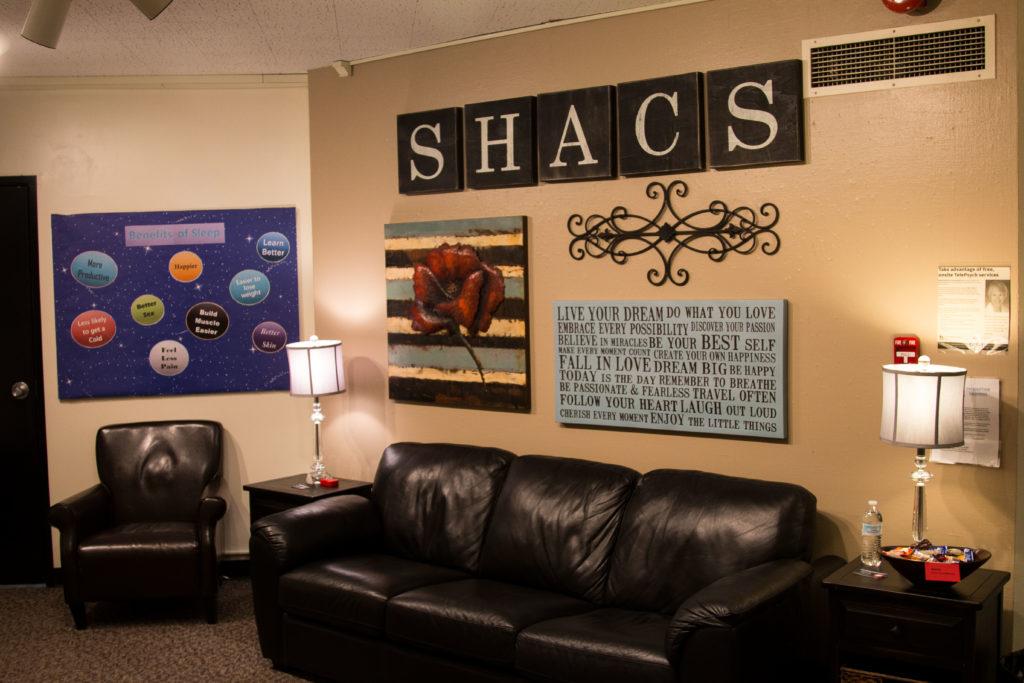
Financial aid packages for hundreds of students at Grinnell include on-campus jobs. This places work-study at the center of debates over inclusivity, particularly for students with mental illnesses who may face additional challenges in the workplace. For some on campus, the threat of negative consequences at work can be a serious stressor.
“Having people’s jobs be on the line for any sort of illness — chronic, mental or physical, it doesn’t matter — that’s not good,” said Quinn Ercolani ’20, vice president of the Union of Grinnell Student Dining Workers. “People depend on financial aid, and these are circumstances that they can’t [control].”
Ercolani claims that the College does not take sufficient steps to protect student workers with mental illnesses.
“Especially with the recent events which have been brought to our attention, [the topic of mental illness and employment] coincided with some things that were said in our bargaining sessions … where the College was less than concerned with student health in general in terms of how that might affect [student] employment.”
Though the extent and sufficiency of accommodations for mental illness for student workers may be in question, protections exist for at least some students.
“If a student employee requests an accommodation through the interactive process with Disability Resources, Autumn [Wilke] works closely with the supervisor of the student to explore and implement approved accommodations,” wrote Autumn Wilke, assistant dean for disability resources, in an email to The S&B.
At multiple levels, protections apply for employees of any kind, including students.
“Some students with mental illness[es] may qualify as an individual with a disability under the Americans With Disabilities Act Amendments Act of 2008,” Wilke wrote. “Some students with disabilities, including mental-health-related disabilities, may also be entitled to support from Iowa Vocational Rehabilitation Services.”
According to Wilke, support is also available at the college level.
“If any college employee, including students, believes that they have a disability, they can meet with [me] … to explore eligibility for individual accommodations.”
Though the College and the law do go to some lengths to protect workers suffering from mental illness, how far do they go? What is a reasonable accommodation? Do accommodations ever interfere with financial realities?
“When we start trying to reconcile moral arguments with economic arguments, the soul dies a little bit inside,” Ercolani said. “Trying to make an argument [that the College has] to recover the economic losses because people have mental illnesses and are not always steady reliable workers for every shift.”
With respect to students missing shifts due to mental health issues, Ercolani believes it is a small deficit that the College is able to handle.
“On some level, you have to say, [The College], as a $2 billion industry, … can afford to eat some of that loss, especially because … it’s not paid sick leave, it’s just, ‘I can’t show up so you’re not going to pay me.’”
Regardless, Ercolani thinks that making accommodations for students with mental illnesses is not a huge burden.
“Because of the way things are scheduled on this campus, generally, in most cases the work schedule could be shifted [to accommodate students with mental illnesses]. There are jobs on campus that people can work that are not strictly hourly shifts, and that gets by just fine,” he said.
If the accessibility of campus employment for students with disabilities is such a significant problem, then, what solutions have been and are in the works to fix it?
“Training would definitely be something that I would recommend, … making staff understand there are more specific problems for modern day college students that are being more fleshed out as the research improves,” Ercolani suggested. “Maybe saying to students, ‘we understand these issues you’re facing, and from an employment side, we can’t economically justify this, but what we can do is get you into a position where you have more flexible hours.’ [Creating] a basic understanding among the staff, through training, that students have different priorities than a full member of the work force.”
It seems that such training may already be in progress. Wilke pointed out that training for staff was among the recommendations of the Disability and Accessibility Task Force Report, finalized in Sept. 2016.
“All student supervisors will receive training on accommodation procedures, the ADA in the workplace, and mental and emotional disabilities during the Spring 2018 Training Session to be held during the January break,” she wrote.
The College is taking steps to improve accommodations for student workers with mental illnesses. How effective these steps are remains to be seen.

























































